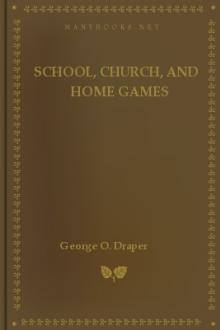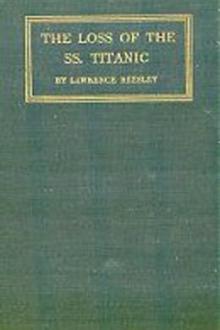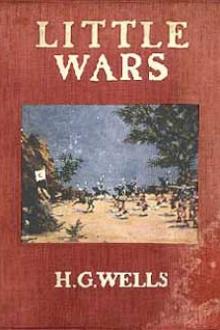Genre Literary Collections. Page - 22

Music Rush
A march is played on the piano and the children march from their seatsin single file around the room. As soon as the music stops, all rush toget into their seats. The last one in, must remain in his seat duringthe second trial. If there is no piano in the room, drumming on the topof a desk will do as well.
Change Seat Relay
The teacher claps her hands. This is the signal for all to shift oneseat back. The one in the rear seat runs forward and sits in the frontseat. The first aisle to become properly seated wins one point. Againthe hands are clapped and the pupils shift one seat back, and the onethen at the rear runs forward and takes the front seat and so the gamecontinues until all have run forward from the back seat to the front.The aisle scoring the largest number of points wins.
Charlie over the Water
This is an old game and is always popular. The children form a ring,joining hands. One is selected to be "It" and takes his place in thecenter. Those in the ring then

Cawley--should have a place in the honourable list of those who did their duty faithfully to the ship and the line they served.
CHAPTER II
FROM SOUTHAMPTON TO THE NIGHT OF THE COLLISION
Soon after noon the whistles blew for friends to go ashore, the gangways were withdrawn, and the Titanic moved slowly down the dock, to the accompaniment of last messages and shouted farewells of those on the quay. There was no cheering or hooting of steamers' whistles from the fleet of ships that lined the dock, as might seem probable on the occasion of the largest vessel in the world putting to sea on her maiden voyage; the whole scene was quiet and rather ordinary, with little of the picturesque and interesting ceremonial which imagination paints as usual in such circumstances. But if this was lacking, two unexpected dramatic incidents supplied a thrill of excitement and interest to the departure from dock. The first of these occurred just bef

vely stars, the forget-me-nots of the angels.
Evangeline. Part i. 3.
And as she looked around, she saw how Death the consoler, Laying his hand upon many a heart, had healed it forever.
Evangeline. Part ii. 5.
God had sifted three kingdoms to find the wheat for this planting.[616-1]
The Courtship of Miles Standish. iv.
Into a world unknown,--the corner-stone of a nation![616-2]
The Courtship of Miles Standish. iv.
Saint Augustine! well hast thou said, That of our vices we can frame A ladder, if we will but tread Beneath our feet each deed of shame.[616-3]
The Ladder of Saint Augustine.
The heights by great men reached and kept Were not attained by sudden flight, But they while their companions slept Were toiling upward in the night.
The Ladder of Saint Augustine.
The surest pledge of a deathless name Is the silent homage of thoughts unspoken.
The Herons of Elmwood.
He has singed the beard of the king of Spain.[616-4]

NIZE A SCIENTIFIC GROUP OF THREE SECTIONS FOR POTENTIAL USE IN JAPAN IF SUCH USE SHOULD BE DESIRED. THE FIRST GROUP IS FOR HIROSHIMA, THE SECOND FOR NAGASAKI, AND THE THIRD FOR THE PURPOSE OF SECURING INFORMATION CONCERNING GENERAL JAPANESE ACTIVITIES IN THE FIELD OF ATOMIC WEAPONS. THE GROUPS FOR HIROSHIMA AND NAGASAKI SHOULD ENTER THOSE CITIES WITH THE FIRST AMERICAN TROOPS IN ORDER THAT THESE TROOPS SHALL NOT BE SUBJECTED TO ANY POSSIBLE TOXIC EFFECTS ALTHOUGH WE HAVE NO REASON TO BELIEVE THAT ANY SUCH EFFECTS ACTUALLY EXIST. FARRELL AND HIS ORGANIZATION HAVE ALL AVAILABLE INFORMATION ON THIS SUBJECT."
General Farrell arrived in Yokohama on 30 August, with the Commanding General of the 8th Army; Colonel Warren, who was Chief of the Radiological Division of the District, arrived on 7 September. The main body of the investigating group followed later. Preliminary inspections of Hiroshima and Nagasaki were made on 8-9 and 13-14 September, respectively. Members of the press had been enabled to precede G

r a detachment shall beconsidered to be isolated when there is less than half its number of itsown side within a move of it. Now, in actual civilised warfare smalldetached bodies do not sell their lives dearly; a considerably largerforce is able to make them prisoners without difficulty. Accordingly wedecided that if a blue force, for example, has one or more men isolated,and a red force of at least double the strength of this isolateddetachment moves up to contact with it, the blue men will be consideredto be prisoners.
That seemed fair; but so desperate is the courage and devotion of leadsoldiers, that it came to this, that any small force that got or seemedlikely to get isolated and caught by a superior force instead of waitingto be taken prisoners, dashed at its possible captors and slew themman for man. It was manifestly unreasonable to permit this. And inconsidering how best to prevent such inhuman heroisms, we were remindedof another frequent incident in our battles that also erred tow

ndsome silver, which the hostess possesses. The menu is:
Bouillon Lobster Cutlets Tartar Sauce Cucumber Sandwiches Breast of Turkey, larded and broiled Green Peas Current Jelly Hot Rolls Pear and Celery Salad, with German Cherries served in Hearts of Lettuce Caramel Ice Cream, with Pecan Meringue Old Madeira is served with the meat course, then Sauterne.
A FAMILY BREAKFAST.
Grape Fruit with Cherries and Pineapple Creamed Fish New Potatoes with Sauce of Parsley and Drawn Butter Sliced Cucumbers Hot Biscuits Fried Chicken Asparagus on Toast Sweetbreads Waffles and Maple Syrup Strawberry Shortcake, with Frozen Whipped Cream Coffee
LIGHT INFORMAL BREAKFAST.
First serve a fluffy egg omelet with Saratoga potatoes, and fish and cheese sandwiches cut in hearts and rings. Next cucumber boa

; and to describe some elementary methods of caring for the sick, which, however simple, are essential to comfort, and sometimes indeed to ultimate recovery.
FOR FURTHER READING
A History of Nursing--Dock and Nutting, Volume I.
The Life of Florence Nightingale--Cook.
The Life of Pasteur--Vallery-Radot.
The House on Henry Street--Wald.
Public Health Nursing--Gardner, Part I, Chapters I-III.
Origin and Growth of the Healing Art--Berdoe.
Medical History from the Earliest Times--Withington.
Under the Red Cross Flag--Boardman.
Report on National Vitality--Fisher, (Bulletin 30 of the Committee of One Hundred on National Health. Government Printing Office, Washington).
CHAPTER I
CAUSES AND PREVENTION OF SICKNESS
Diseases of two kinds have long been recognized: first, those transmitted directly or indirectly from person to person, like smallpox, measles, and typhoid fever; and second,

low voice, "I told you, Hugh, she'll ruin the whole thing. She's got no idea of mass. she ought to block it violently and leave it without a name. I wouldn't even have 'Chorus'. I hope he won't give way, but he's rather weak."
However, Stanhope was, in the politest language, declining to have anything of the sort. "Call it the Chorus," he said, "or if you like I'll try and find a name for the leader, and the rest can just dance and sing. But I'm afraid 'Leaf-Spirits' would be misleading."
"What about'Chorus of Nature-Powers'?" asked Miss Fox, but Stanhope only said, smiling, "You will try and make the trees friendly," which no one quite understood, and shook his head again.
Prescott asked: "Incidentally, I suppose they will be women?"
Mrs. Parry had said, "O, of course, Mr. Prescott," before the question reached her brain. When it did, she added, "At least...I naturally took it for granted.... They are feminine, aren't they?"
Still hankering after mass, Adela said, "It sounds

hat far-reaching and intimate knowledge of inner historywhich has perennially astonished his readers. The Crimes werepublished in Paris, in 1839-40, in eight volumes, comprising eighteentitles--all of which now appear in the present carefully translatedtext. The success of the original work was instantaneous. Dumaslaughingly said that he thought he had exhausted the subject offamous crimes, until the work was off the press, when he immediatelybecame deluged with letters from every province in France, supplyinghim with material upon other deeds of violence! The subjects whichhe has chosen, however, are of both historic and dramatic importance,and they have the added value of giving the modern reader a clearpicture of the state of semi-lawlessness which existed in Europe,during the middle ages. "The Borgias, the Cenci, Urbain Grandier,the Marchioness of Brinvilliers, the Marchioness of Ganges, and therest--what subjects for the pen of Dumas!" exclaims Garnett.
Space does not permit us to c

is a Great Advancing Life, and the purpose of nature is the advancement of life toward perfection; toward perfect functioning. The purpose of nature is perfect health.
The purpose of Nature, so far as man is concerned, is that he should be continuously advancing into more life, and progressing toward perfect life; and that he should live the most complete life possible in his present sphere of action.
This must be so, because That which lives in man is seeking more life.
Give a little child a pencil and paper, and he begins to draw crude figures; That which lives in him is trying to express Itself in art. Give him a set of blocks, and he will try to build something; That which lives in him is seeking expression in architecture. Seat him at a piano, and he will try to draw harmony from the keys; That which lives in him is trying to express Itself in music. That which lives in man is always seeking to live more; and since man lives most when he is well, the Principle of Nature in him can se